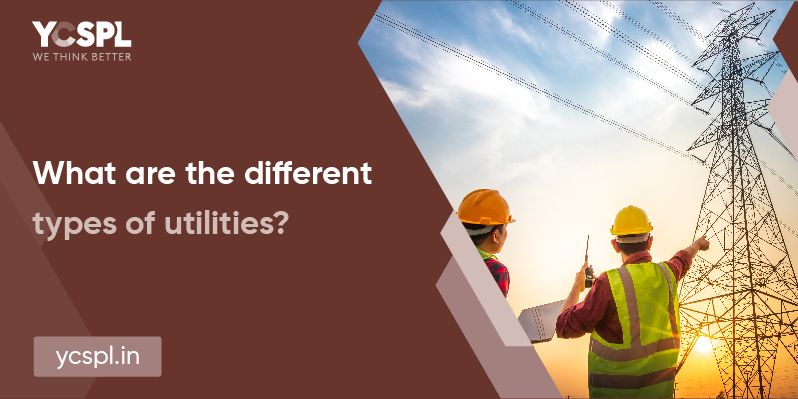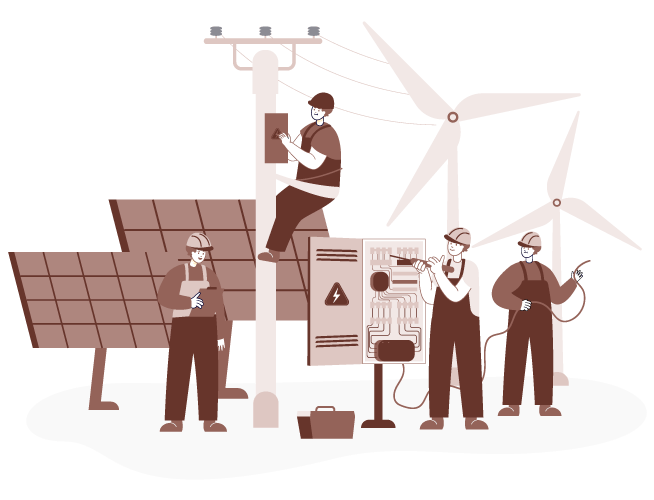
On a general note, site utilities refer to the infrastructural constructions and features that facilitate some of the functional aspects of a building. The general types of utilities include the facilities like water, fire hydrants, stormwater facilities, sanitary disposal arrangements, etc. All these should be a part of the original blueprints.
When it comes to utility in business, it simply refers to an entity that’s offering these services as a door to door services. But since there is a chance of a monopoly situation here and since these are a part of essential services, there are strict regulations around. The most likely governmental intervention with proper protocols is regulated here.
Basis utilities like water, gas or electricity are absolutely essential services. They even play a key role in the socio-economic development of any region in question. And since there are a lot of competitors now in the utility sector, there is a framework structure for their operational regulations. This is to eliminate any anti-competitive practices and to keep the pricing justified.
The common goal in the sector should be to enhance resource accessibility across communities. The organizations in the sector should promote the freedom of associations and also prevent collective bargaining.
This is the most basic utility that should be a prior focus when designing an infrastructural plan. If the region is at risk of groundwater levels, then the local authorities or the planners should hire water services. This is applicable for both commercial and residential premises.
Gas utility refers to the companies that are authorized to provide gas services for heating purposes to replace electric consumption. This can be for both commercial and personal usage. There is a strict government intervention here in terms of subsidiaries.

Power is a fundamental need almost everywhere. India’s electricity sector is very dynamic in nature. The power produced in the country is predominantly sourced from resources like coal, natural gas, hydro, oil, lignite, and nuclear power. Some of the major players in the power regulation sector include Adani Transmission, NTPC, Powergrid, TATA Power, JSW Energy, Reliance Power Ltd, etc.
Sewage utility refers to the systems, structures, plants, and treatment services that offer wastewater disposal arrangements. This is important to retain the sanitary aspects of any grid. Usually, municipal authorities take charge of this in the cases of residential areas to make sewage systems accessible for different communities and localities in a proper way.
There are a lot of surrounding rules and regulations with respect to the disposal and recycling of grey and black waters. When it comes to commercial premises, there are also frameworks to devise proper in-house treatment facilities to contain the level of waste generation. All these will help in leveling up our community together towards sustainable improvements.
The Internet has become one of the highly demanded commodities these days and there are a lot of utility providers in this segment. It is still not regulated as a utility such as water or electricity. There are a lot of Internet Service Providers (ISPs) that do not have stringent utility rules in terms of their prices, plans, or business structures. But it is not going to be long before that evidently happens.
Given the pace of connectivity and progress that we are running after, this will be structured under the types of utilities to protect the end user from pricing abuses by service providers.
When it comes to the question ‘what are the different types of utilities?’, the answer can be pretty straightforward in the older times. But now we are increasingly relying on commodities that improve connectivity among individuals and they’re one of the life essentials that we can’t really survive without.
Communication utilities include coaxing, copper, wireless and fiber connections that aid in telecommunication services.
Utility computing is a service provisioning model. It is focused on providing computing resources on a pay-per-service model. This makes IT resources like travel reservation services, online retailing, etc easily accessible as need be.
Companies like YCSPL help in facilitating these types of utilities and aid in easy management of the processes. Our company acts as intermediary support in managing the interaction between the end-users and the government organizations.
Change becomes the most dynamic, powerful source of progress you have

